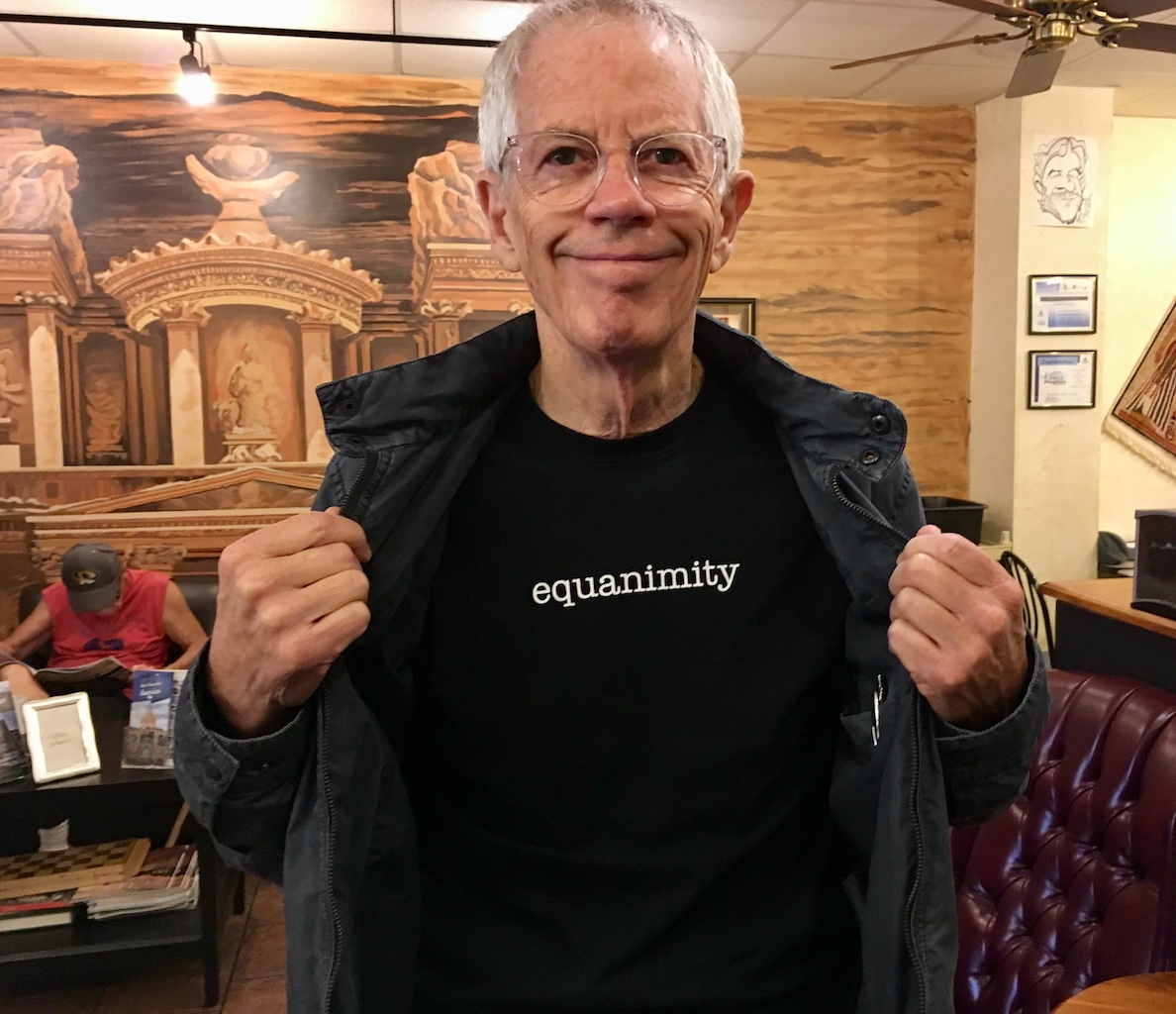A man with a boring job is on his way to work when his attention is caught by some unexpected detail in his otherwise familiar routine—a peculiar insect, a pattern in the concrete, a cryptic slogan on a t-shirt.
This detail seems extremely significant to him, but he doesn’t know why.
The strange sight wakes him up from the autopilot-mode by which he has been living his life. He is suddenly aware, for the first time, how complex and interesting his local high street is, and he stops to take it in.
Around him pass hundreds of distinctly different people, each a unique individual, driven by some unseen personal motivation. Shops are filled with thousands of trinkets, tools, snacks, and books. Delivery trucks roll past, music plays from somewhere, buildings rise above him. The scene is miraculous to him.
As he surveys the street, he witnesses something surreal: another version of himself is walking away from him, towards his usual bus stop, evidently not having had this same moment of self-awareness. For reasons he is never told, at that moment his life had apparently split in two.
However, his double does not make it onto the bus: as he waits, an air conditioning unit falls from a window above, killing him instantly. In a very unexpected and unstorylike way, his life ends.
The man has no idea what has happened, and never receives an explanation. The authorities never identify the person beneath the air conditioner, and the man never tells anyone what he witnessed because nobody would ever believe it.
There is nothing to do but carry on with his life. But he is a changed man.
Every morning he is amazed to find another whole day awaiting him. Every meal, every phone call, every greeting from his doorman feels like an undeserved gift, as though he’d mistakenly been given the honeymoon suite at a hotel. He feels grateful even for his problems.
None of the details of his life have changed, except one thing. He now lives with an awareness that he was never truly entitled to be alive; he just happened to be, and still is.
His ability to breathe, see, feel, and make choices now seems to him like an unearned, arbitrary status—one that he may freely enjoy, but which can be revoked at any time without explanation.
He hopes he never loses this sense that his life is essentially a bonus round, consisting entirely of borrowed time, not just from the day of his strange experience, but from the beginning.
There’s more to Mr. Cains post and it’s worth a read.


